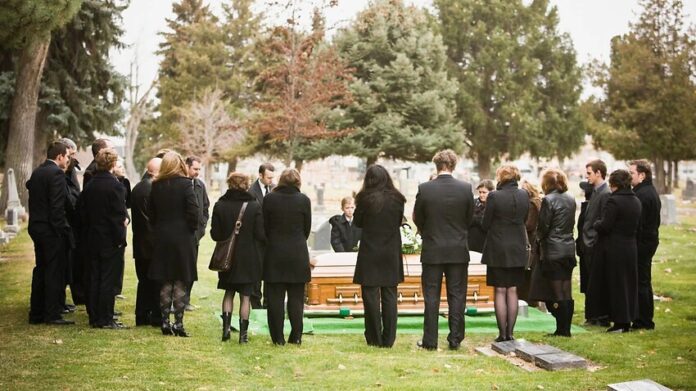Immigrants face many unexpected situations in their lives. One of them is the uncertainty surrounding the next formality after the death of a loved one or friend. That’s why it’s important for everyone to know how a funeral is organized and performed in Australia.
Important aspects:
- New immigrants may face an uncertain situation if a loved one dies unexpectedly.
- The Funeral Director ensures that all formalities are completed properly.
- If more information is needed about a person’s death, the coroner’s help is sought.
- The Births, Deaths, and Marriages Registry provides a variety of services, from creating death certificates to sending information to various organizations.
Immigrants may face an uncertain situation in a new country in the event of the untimely death of a loved one.
The family members of the deceased go into mourning and do not understand what to do in the event of an accident. Many face this experience for the first time in their lives.
Matthew Curiacos, a resident of the south-east of Melbourne, said when one of his family members died a few years ago, they did not know what to do next.
Matthew Curiacos’ family comes from the Kerala region of India. As they have seen the funeral process there, the experience of arranging that in Australia is quite different from that.
Scott Duncombe, a director at Sydney Funerals Co., says the first thing to do in this situation is to contact a funeral director.
Mr Duncombe said it was best not to rush into this uncertain and challenging time.
Funeral directors usually complete all paperwork and documentation to organize a funeral.
The Funeral Director works closely with The Births, Deaths and Marriages Registry and helps register deaths.
Amit Padhiar, an acting registrar working in New South Wales, explained the process, saying that a death certificate is an official record that provides evidence of someone’s death. It also serves as proof of the relationship of the deceased to others in the family.
And after someone dies, the death certificate is very useful in completing various formalities.
Funerals are arranged after the issuance of death certificate and other formalities are completed.
In some cases, the cause of death and other surrounding issues may need to be investigated. A coroner does these things.
Victoria Deputy State Coroner Jackie Hawkins spoke about the three specific aspects of coroners’ work: identifying and confirming the identity of the deceased, knowing the cause of death, and making sure of the circumstances surrounding the time of death.
When the coroner conducts various experiments to determine the exact cause of death, in many cases they depend on the time of completion and how long it will take to arrange the funeral.
Mr Kuriakos said the cost of arranging the funeral could be unimaginable in many cases.
The funeral director talks to the family of the deceased and tries to find out their needs. He then helps to find affordable funeral arrangements according to that demand.
Mr Duncombe said it was important to talk to some of the funeral directors so that arrangements could be made for the funeral to be conducted in accordance with the family’s cultural and religious customs.
For example, according to Islamic law, funeral arrangements have to be made immediately after the death of a person and he has to be buried as soon as possible.
In such cases, the family of the deceased should contact an Islamic organization or a funeral director who is experienced in arranging funerals under Muslim law.
Jackie Hawkins, Deputy State Coroner of the State of Victoria, said that if the coroner is involved, help is provided to immigrant and multicultural communities, such as providing information for Griff Counseling.
If the deceased is not a citizen of this country, then depending on his visa, the relevant formalities may have to be completed.
In this case, he will need to prepare the relevant documents for handing over to the embassy of his own country.
Mr. Duncombe said the Funeral Director works closely with other agencies to ensure that these processes are properly completed.
After the death of a person, it is important to report the information of his death to many concerned agencies and institutions.
Mr Padhiar said the Australian Death Notification Service was a platform that helped inform multiple agencies about a person’s death.
Agencies notified by the Death Notification Service include banks, telecommunications, utilities, electricity, gas and water, and insurance and other government agencies.
The platform also offers translation services in 50 languages.





